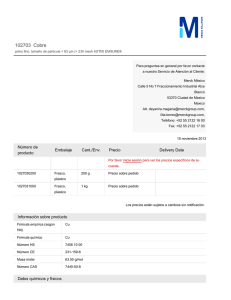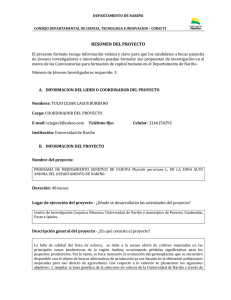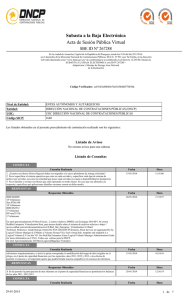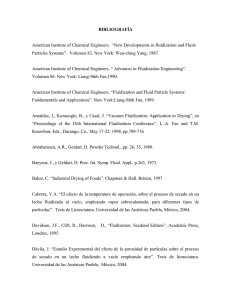EFFECT OF STORAGE CONDITIONS ON QUALITY OF A
Anuncio
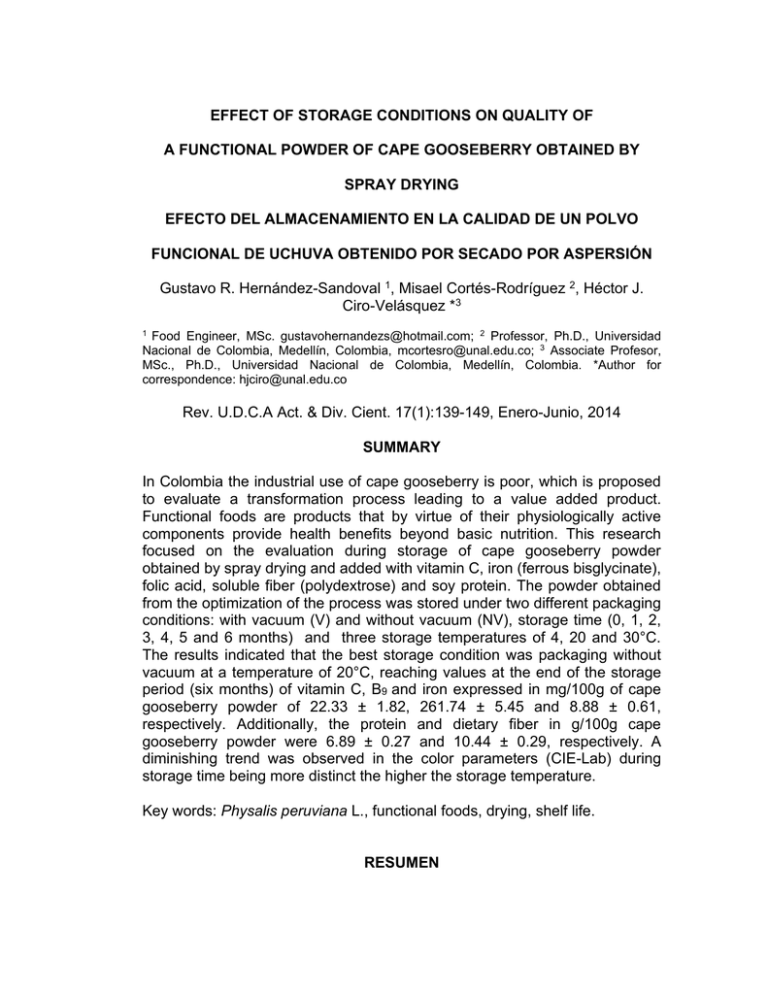
EFFECT OF STORAGE CONDITIONS ON QUALITY OF A FUNCTIONAL POWDER OF CAPE GOOSEBERRY OBTAINED BY SPRAY DRYING EFECTO DEL ALMACENAMIENTO EN LA CALIDAD DE UN POLVO FUNCIONAL DE UCHUVA OBTENIDO POR SECADO POR ASPERSIÓN Gustavo R. Hernández-Sandoval 1, Misael Cortés-Rodríguez 2, Héctor J. Ciro-Velásquez *3 1 Food Engineer, MSc. [email protected]; 2 Professor, Ph.D., Universidad Nacional de Colombia, Medellín, Colombia, [email protected]; 3 Associate Profesor, MSc., Ph.D., Universidad Nacional de Colombia, Medellín, Colombia. *Author for correspondence: [email protected] Rev. U.D.C.A Act. & Div. Cient. 17(1):139-149, Enero-Junio, 2014 SUMMARY In Colombia the industrial use of cape gooseberry is poor, which is proposed to evaluate a transformation process leading to a value added product. Functional foods are products that by virtue of their physiologically active components provide health benefits beyond basic nutrition. This research focused on the evaluation during storage of cape gooseberry powder obtained by spray drying and added with vitamin C, iron (ferrous bisglycinate), folic acid, soluble fiber (polydextrose) and soy protein. The powder obtained from the optimization of the process was stored under two different packaging conditions: with vacuum (V) and without vacuum (NV), storage time (0, 1, 2, 3, 4, 5 and 6 months) and three storage temperatures of 4, 20 and 30°C. The results indicated that the best storage condition was packaging without vacuum at a temperature of 20°C, reaching values at the end of the storage period (six months) of vitamin C, B9 and iron expressed in mg/100g of cape gooseberry powder of 22.33 ± 1.82, 261.74 ± 5.45 and 8.88 ± 0.61, respectively. Additionally, the protein and dietary fiber in g/100g cape gooseberry powder were 6.89 ± 0.27 and 10.44 ± 0.29, respectively. A diminishing trend was observed in the color parameters (CIE-Lab) during storage time being more distinct the higher the storage temperature. Key words: Physalis peruviana L., functional foods, drying, shelf life. RESUMEN En Colombia el aprovechamiento industrial de la uchuva es deficiente por lo cual se propone evaluar un proceso de transformación que otorgue un valor adicional al producto. Alimentos funcionales son productos que por virtud de sus componentes activos proveen beneficios a la salud más allá de componente nutricional. Este trabajo de investigación consistió en la evaluación durante el almacenamiento de polvo de uchuva (Physalis peruviana L.) obtenido mediante secado por aspersión y adicionado con vitamina C, hierro, ácido fólico, fibra soluble (polidextrosa) y proteína de soya. El polvo obtenido a partir de la optimización del proceso de secado por aspersión se almacenó bajo dos condiciones de envasado diferentes: con vacío (V) y sin vacío (NV), para diferentes tiempos de almacenamiento (0, 1, 2, 3, 4, 5 y 6 meses) y a tres temperaturas de almacenamiento de 4, 20 y 30°C. Los resultados indicaron que la mejor condición de almacenamiento es envasado sin vacío a una temperatura de 20°C, alcanzando valores al final del período de almacenamiento (6 meses) para la vitamina C, B9 y hierro en mg/100g de polvo de uchuva de 22,33 ± 1,82; 261,74 ± 5,45 y 8,88 ± 0,61, respectivamente. Además, la fibra y la proteína dietética en g/100g de polvo de uchuva fue de 6,89 ± 0,27 y 10,44 ± 0,29, respectivamente. Una tendencia a la baja se observó en los parámetros de color (CIE-Lab) durante el tiempo de almacenamiento siendo más significativa cuando la temperatura de almacenamiento se incrementó. Palabras clave: Physalis peruviana L, alimento funcional, secado, vida útil.
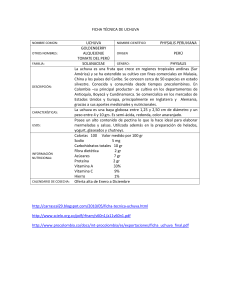
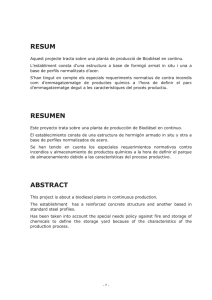
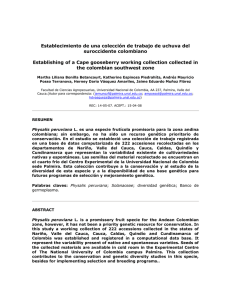
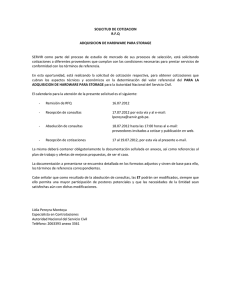
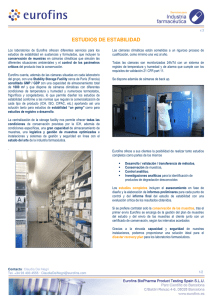
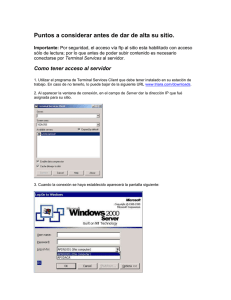
![nord-stu-8 [Converted].cdr](http://s2.studylib.es/store/data/005069471_1-0bb9c0c28505e6053334d83d2f79c932-300x300.png)
